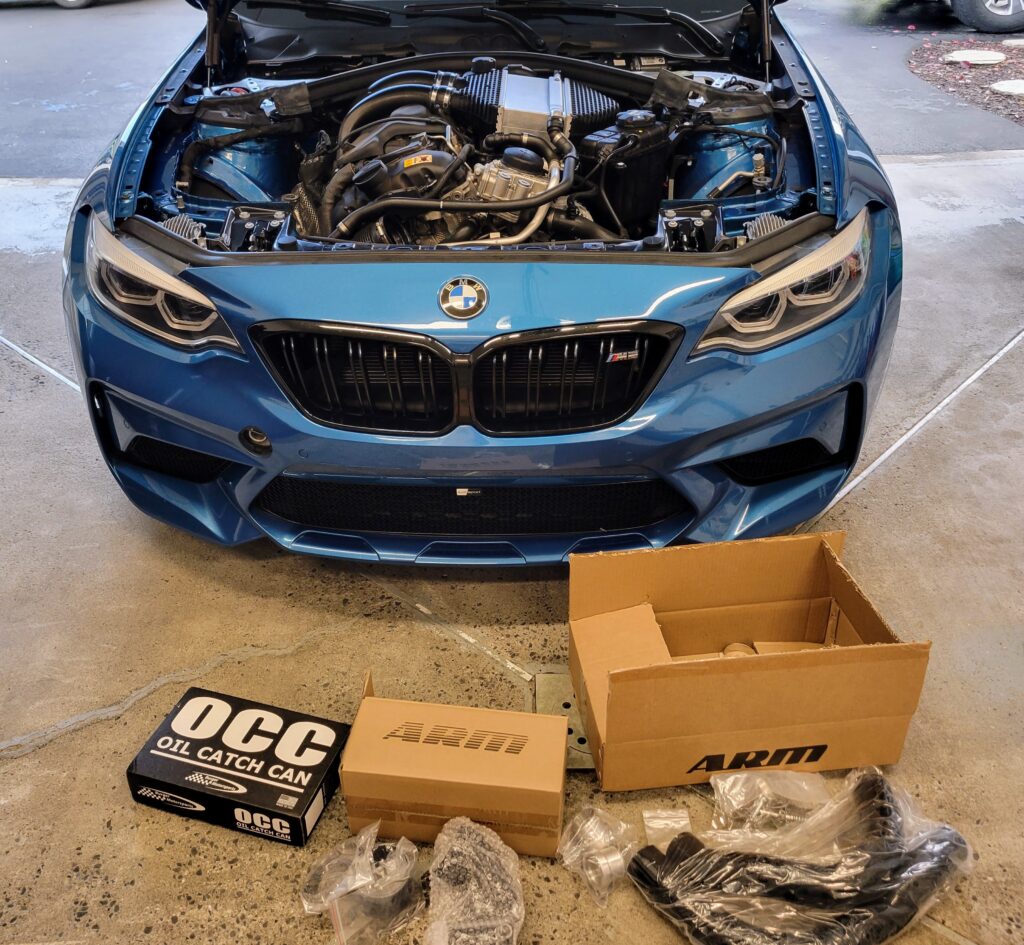I’ve had a few months now of ownership of the BMW M2 Comp, and while I’ve found the new car very comfortable to run around with on the streets, and it’s been fun to be competitive in stock form at the autocrosses, I’ve been actually shocked by the cost of aftermarket parts for this car. Prices for parts have been twice to nearly five times as high as what I was used to paying for my Mitsubishi Evo. Camber plates? $350 versus $750. Intake? $400 versus $800. Front brake pads? $230 versus $800.
The economics of the BMW have taken a good amount of the joy of owning the M2C out of the equation for me. While I thought I was making a statement by avoiding paying an outrageous markup on a used Civic Type R, I think I’ve fallen into a similar financial pit with the cost of parts for the M2 Competition.

I’ve consulted with some friends who own and track similar M2 Competitions, and I’ve gotten some good advice on what’s needed to enhance the car’s performance at the track and to keep costs down in the process. The paths of the two friends provide the choice between two road maps: A) minimal mods to enhance performance and minimize costs, and B) significant mods to… enhance performance and minimize long-term costs at the expense of significant upfront costs.
In the minimal mod corner, I’ve gotten the suggestion of getting some camber plates to address the limits of the stock front camber adjustment range in order to even out wear on the front tires, which I’ve been told will typically get more wear on the outside edges. However, this leaves uncovered several drawbacks that track use vehicle owners will recognize, not only with tires, but some other components as well. Let’s look at the tire issues.
The stock wheel & tire setup, which isn’t “square” (i.e. the same all around), is a 245/35R19 front tire and 265/35R19 rear tire setup. The OEM wider rear tire configuration means that you can’t rotate tires front to back, which can help even out wear and prolong the life of your track tires. On top of the lack of a rotation option, the pricing and selection of performance tires in this 19″ sizing is pricey and limited. Michelin makes a great tire, but you pay for that quality and performance. The experience of owners says that there are better (and cheaper) choices in the 18″ tire sizes, but there is an issue with that: OEM brake rotors do not allow you to convert to 18″ wheels due to the stock M2 Competition rotors’ diameter being so large as to require 19″ wheels. To break out of this 19″ wheel limitation, you’ll need to jump to option B as mentioned previously.
Option B, the significant mods method, you make some significant investments in brake packages and new 18″ wheels, and then reap the rewards of cheaper options for tires, longer lifespan of those tires, and significant savings on brake pads. However, to get to these benefits, you’ll need to grit your teeth and be prepared to part ways with over $10k worth of upgrades and parts. First up, would be a brake kit to accommodate 18″ wheels. I’ve used AP Racing brake kits from Essex Parts, and they are quality kits. Brake pads are significantly cheaper for these brake kits than they are for the stock Brembo calipers the M2 Competition come with, but the prices of these kits are eye-watering compared to what I paid for the kit I put on my Evo. The Evo kit I had went for roughly $2400, while the cheapest kit I could go with for the M2C is over $4700! Where I really start to cry is that cost only covers the front brakes; to cover the rear brakes would require another kit and cost another $4400!! These rotors are slightly smaller than the OEM stock rotors, and thus fit 18″ wheels, but provide comparable braking performance so that you don’t lose anything in the conversion, other than a significant portion of your bank account.
So, you’ve gone $9200 into downsizing the brakes to fit 18″ wheels & tires, now it’s time to purchase those wheels. Wheels in the sizes needed for the M2C – say, 18×9 or 18×9.5 – typically are running at minimum $2k or more.
Another option I’ve seen some owners take is simply plus sizing the front tire widths and squaring up the setup – 265s all around. This requires some new wheels – APEX has a great guide on this setup.
I figure I’ll do a track day first before figuring out what direction I may want to go with the car. Next steps are setting up an appointment at Highline Motorsports to get the camber plates installed and do a whole vehicle fluids change (thanks Henry @ BimmerWorld for putting together a package for me). Then, I’ll be hitting a track day at Lime Rock Park with Patroon Chapter BMW CCA.
